The British sole survivor of the horrific Air India crash is haunted by nightmares where he sees ‘everyone die’, his family have said.
Vishwash Kumar Ramesh, 40, who was sitting in seat 11A, walked away with only cuts to his face and some chest injuries.
He has been dubbed the ‘miracle man’, ‘God’s child’, and a ‘symbol of hope’ by Indian media, and locals call him ‘the man who cannot be killed’.
But he is wracked with guilt as he faces the reality of being the only person out of 242 passengers and crew to survive the crash after the jetliner slammed into the ground and burst into flames.
He struggles to sleep at night, according to a member of his extended family, Krunal Keshave, 24, from Leicester.
‘He sleeps but doesn’t sleep properly. When he sleeps, he dreams he is on the flight. He remembers seeing everyone die in front of his eyes.’
The miracle survivor previously said he feels ‘terrible’ he could not save his brother Ajay, 35, and feels tormented with guilt over his death.
The pair ran a fishing business in Diu, India and would live there during the fishing season – which begins in September and ends in May – then would return to Leicester for the off-season.

Vishwash Kumar Ramesh, the British sole survivor of the horrific Air India crash, is haunted by nightmares where he sees ‘everyone die’, his family have said
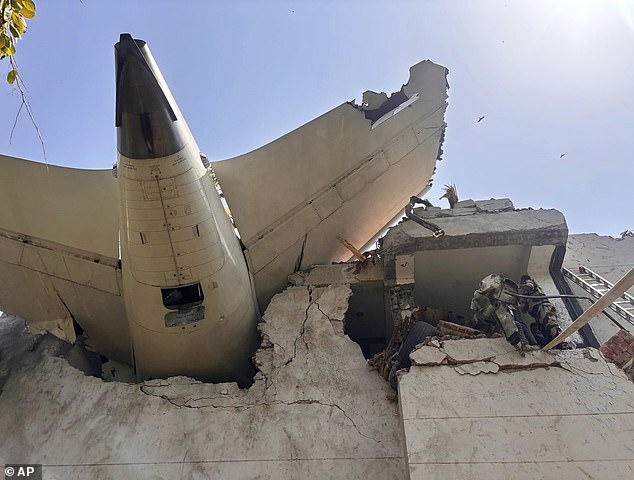
Pictures show the devastation after the plane crashed into a residential building. In Powai, Mumbai, one of Captain Sabharwal’s former colleagues told the Daily Telegraph that he was a ‘thorough gentleman’
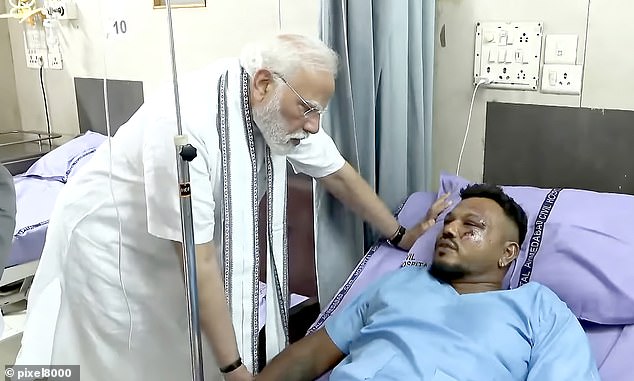
He is wracked with guilt as he faces the reality of being the only person out of 242 passengers and crew to survive the crash as the jetliner slammed into the ground and burst into flames. Above, Indian Prime Minister Modi met the miracle survivor
‘He sees him everywhere…He speaks but he doesn’t speak about the crash. He is currently trying to have a normal life, but he is not going out too much. He is spending time at home with the family. He was living in the house in Diu with his brother before the crash,’ Krunal told The Sunday Times.
Another relative said: ‘He feels guilty that he is the only one to have lived when everybody else, including his brother, died. It’s a lot to live with.’
The 40-year-old told The Sun: ‘It’s a miracle I survived. I am OK physically but I feel terrible that I could not save Ajay.’
Vishwash had tried to book two seats next to each other on flight AI171, which crashed into a densely populated part of the city of Ahmedabad shortly after takeoff.
But by the time he came to make the reservation, he was forced to pick two seats apart from each other in row 11.
Vishwash said: ‘If we had been sat together we both might have survived.
‘I tried to get two seats together but someone had already got one. Me and Ajay would have been sitting together.
‘But I lost my brother in front of my eyes. So now I am constantly thinking ‘Why can’t I save my brother?’
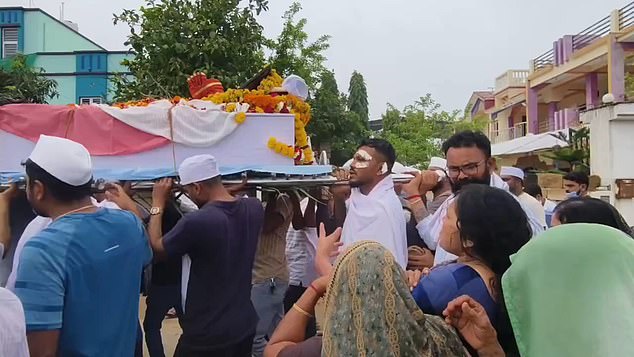
Vishwash carried his brother’s coffin at a ceremony in Gujarat last month
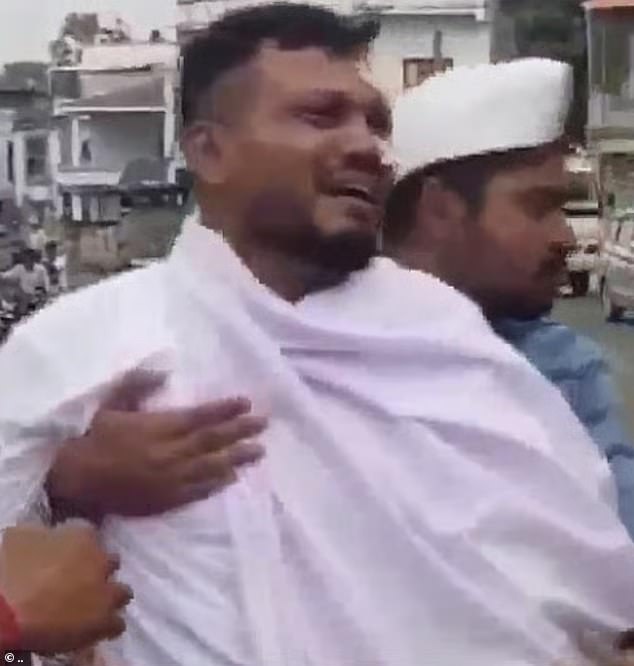
Vishwash was later seen crying in anguish, and had to be carried away
Vishwash carried his brother’s coffin at a ceremony in Gujarat last month. He was later seen crying in anguish and had to be taken away.
He was sitting next to one of the plane’s emergency exits, was able to crawl through a hole in the twisted fuselage of the Boeing 787 Dreamliner.
Footage exclusively obtained by MailOnline showed Vishwash tried going back to the site of the inferno to save his brother.
Vishwash told the first emergency service worker on site: ‘My family member is in there, my brother and he’s burning to death. I have to save him.’
Emergency worker Satinder Singh Sandhu said: ‘I walked nearer to Mr Ramesh, grabbed him by the arm and led him away to a waiting ambulance.
‘I had no idea that he was a passenger on the plane and thought he was a resident of the hostel or a passer-by.
‘He was very disoriented and shocked and was limping. There was also blood on his face, but he was able to speak.
‘He told the paramedics that he was flying to London when the plane fell and that he wanted to go back to save his family.’
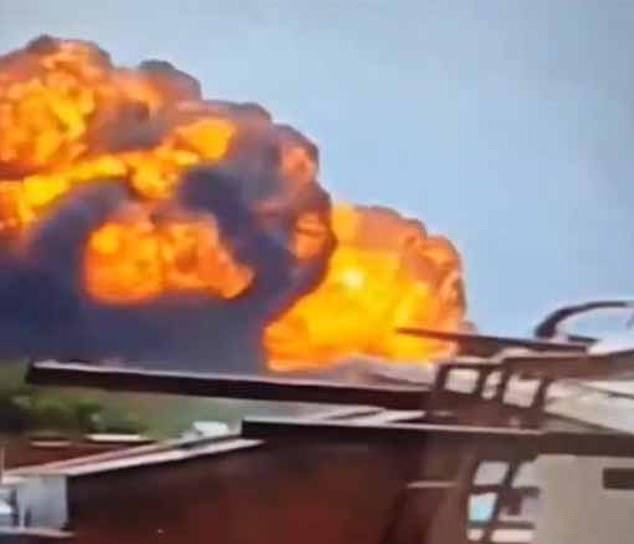
The plane momentarily disappeared from view behind trees and buildings before a massive fireball erupted on the horizon in this horrifying clip
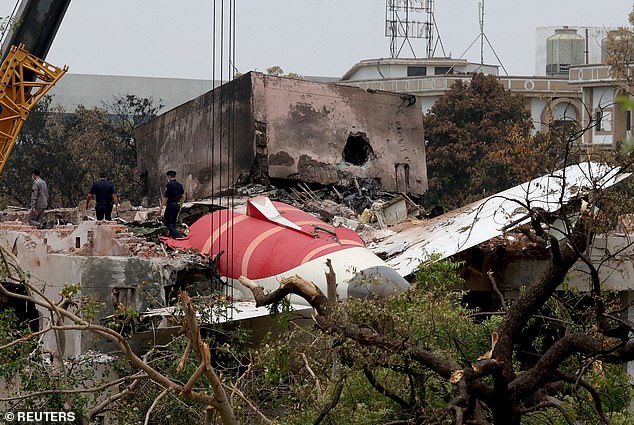
The aircraft struck a medical college hostel in a residential part of Ahmedabad, killing 241 of the 242 people on board, 52 of whom were British
Shortly after the tragic crash he told Indian media: ‘I thought I would die. Everything happened in front of my eyes,’
‘I don’t know how I came out of it alive. I saw people dying in front of my eyes.’
The crash was one of the deadliest plane accidents in terms of the number of British nationals killed.
The aircraft struck a medical college hostel in a residential part of Ahmedabad, killing 241 of the 242 people on board, 52 of whom were British.
Investigations into the Air India plane crash are looking into the captain Sumeet Sabharwal, 56, who remained calm as the first officer Clive Kunder, 32, panicked about the fuel supply to the engines being cut off.
A black-box recording of their conversation suggests that it was Sabharwal who turned off the switches, according to sources close to the US side of the probe.
The Wall Street Journal reports that US pilots who have reviewed the Indian investigation believe first officer Clive Kunder, who was flying the aircraft, would probably have had his hands full trying to keep the Boeing Dreamliner steady.
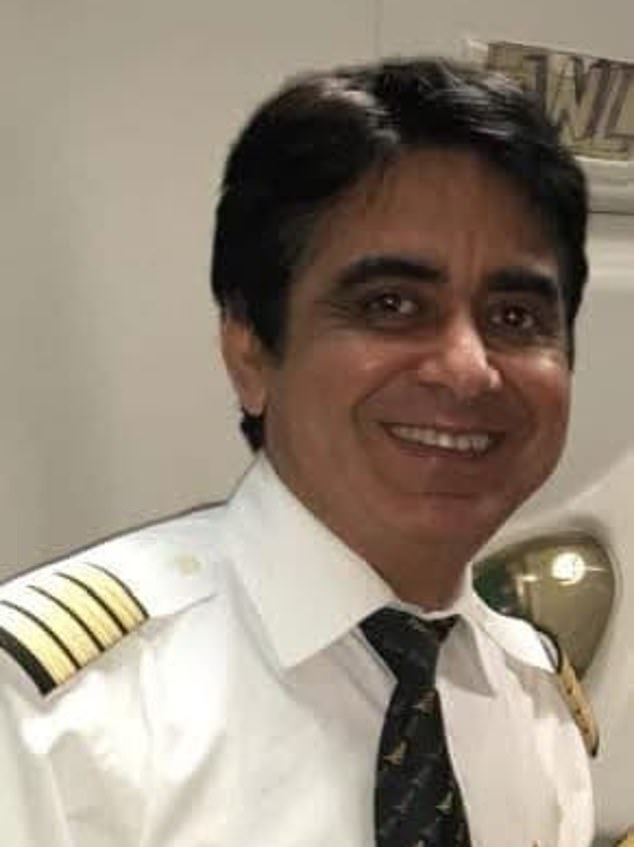
Investigations into the Air India plane crash are looking into the captain Sumeet Sabharwal, 56, (pictured) who remained calm as the first officer Clive Kunder, 32, panicked about the fuel supply to the engines being cut off
That responsibility would have left the captain, who was acting as the monitoring pilot, free to oversee the operation and possibly make adjustments.
According to the official report, two crucial switches were flipped off one after the other, exactly a second apart. Ten seconds later, both switches were turned back on.
In a preliminary summary of the exchange between pilots one asked the other why he moved the switches, while the other denied doing so.
Air India said it ‘stands in solidarity with the families and those affected by the AI 171 accident’. A spokesman said: ‘We continue to fully co-operate with the AAIB and other authorities as their investigation progresses.’











